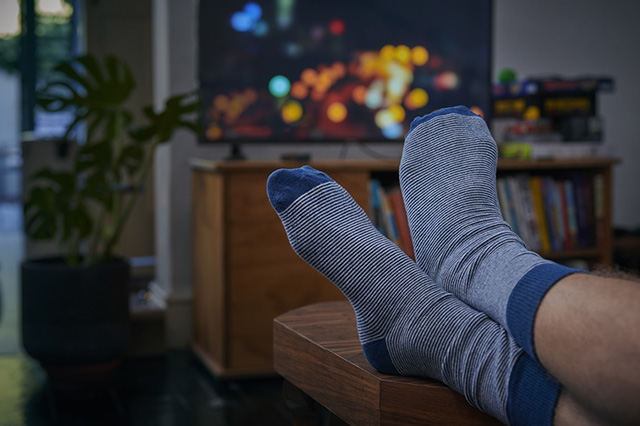For many working professionals, achieving work-life balance — creating the perfect harmony between their job, family, friends and personal time — can be a struggle.
Performing well at your job while maintaining all of the different aspects of your life from taking care of your family to keeping on top of household errands and handling expenses does take a lot of effort, but it’s important find and strike the balance that works best for you. Allowing work to follow you home or vice versa can be overwhelming.
Juggling too many tasks can cause emotional, mental and physical stress as well as increase the likelihood that something will fall by the wayside. Working too hard can also lead to burnout, a medical diagnosis and “occupational phenomenon” officially recognized by the World Health Organization.
Burnout has been defined as a syndrome “resulting from chronic workplace stress that has not been successfully managed,” according to the organization. It has three main characteristics: exhaustion, reduced professional efficiency and increased mental distance or cynicism toward your job.
To perform your best in and outside of the office, try these work-life balance tips.
Stay Organized
Being organized is a simple way to help you save time and energy doing everyday tasks, which can help you cut down on small stresses and ultimately make achieving work-life balance easier.
Staying organized means knowing where things are; so always keep your essentials — keys, phone, wallet, work bag or purse, etc. — in the same location so you never have to waste time searching for them. You can also save time by planning ahead, like making your lunch and picking out your clothes the night before.
A to-do list will help you to remember things, whether they be physical items you need to bring with you or tasks that have to get done. The way you structure your list should be whatever works best for your needs. It can be physical — on paper, a dry erase or chalk board that gives you the satisfaction of erasing or crossing things off — or electronic. Alerts or reminders on your phone can be better for time-sensitive matters.
Get Enough Sleep
Sleep is how we recharge, but it seems we’re never getting enough. Exactly how much sleep you need depends on a number of factors, like your age, activity and stress levels. Nevertheless, sleep should be a priority because it’s an essential component of your overall health.
The National Sleep Foundation recommends that younger adults (ages 18 to 25) get seven to nine hours of sleep per night, adults (ages 26 to 64) should also get seven to nine hours and older adults (ages 65 and older) should get seven to eight hours.
“You must schedule sleep like any other daily activity, so put it on your ‘to-do list’ and cross it off every night,” according to the Sleep Foundation. “But don’t make it the thing you do only after everything else is done — stop doing other things so you get the sleep you need.”
Check out these tips for getting better sleep. If those don’t work for you, look into getting some items that might held you catch some Zs.
Consider Telecommuting
Working remotely is growing in popularity, and it’s easy to see why. Telecommuting allows the flexibility to work when it’s most convenient, the ability to save time and gas money by avoiding a commute and no office distractions/interruptions.
However, just as there are pros to working from home, there are also cons. A lack of physical separation between work and home could pose some issues, mainly overworking. To avoid forgetting to “clock out,” have set work hours for yourself. Only focus on work for a specific number of hours a day — like the typical 9:00 a.m. to 5:00 p.m. — and have an organized, designated space for work so you can compartmentalize.
When it comes to bettering your work-life balance, consider what would best fit your situation and work ethic. You may only want to work remotely one or two days a week rather than full-time, vice versa or keep work completely in the office.

Prioritize Personal Time
If weekdays are for work and weekends get filled by errands, family and friends, when do you get time for yourself? Taking some personal time, even if it’s just an extra hour in the morning for a quiet cup of coffee and breakfast, can be really beneficial.
Doing something relaxing like going to the spa, taking a nap or being creative can be refreshing, making you feel more capable of tackling what life throws at you.
If you’re the kind of person who wants to make your personal time a bit more productive, that’s fine too. Meditating, reading or going for a walk are all calming “me time” activities that will still feel like you’re accomplishing something.
Maybe you want to keep mind and body healthy with an exercise routine. Get a fitness center membership for $25 a month with Active&Fit Direct. AAA Members get 10% back after 12 months.
However and whenever you spend it, don’t overlook the importance of having some time to yourself.
Take a Break/Unplug
The pervasiveness of technology makes it all too tempting to obsess over work, like repeatedly checking your email away from the office, especially if you work from home.
To avoid throwing off your work-life balance or possibly burning out, take a moment to unplug — even if it’s for only 20 or 30 minutes — and do something that doesn’t involve screens. If you choose to unplug during the day, this could become part or your personal time, or you can try multi-tasking like doing chores or having fun while exercising.
Avoiding screens before bed could make it easier to fall asleep, so unplugging before bed could be right for you if you’re looking to make sleep a priority.
If you’re still feeling overwhelmed or like your work-life balance is out of whack, you might want to consider taking a slightly longer break. You may be in need of a vacation if you’re showing some of these signs.
The definition of achieving a work-life balance varies from person to person. To find what works for you, consider all of your responsibilities, decide what’s most important and how much of your time should be allotted to each.
Be realistic about your abilities by knowing your strengths and weaknesses, and seek out help when you need it.
Remember that people aren’t perfect, and trying your best is sometimes all you can really do.
What could help you achieve a better work-life balance? Tell us in the comments.














